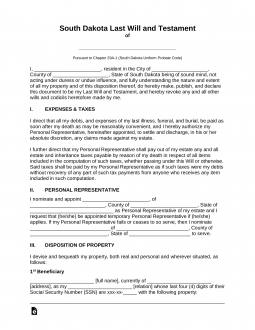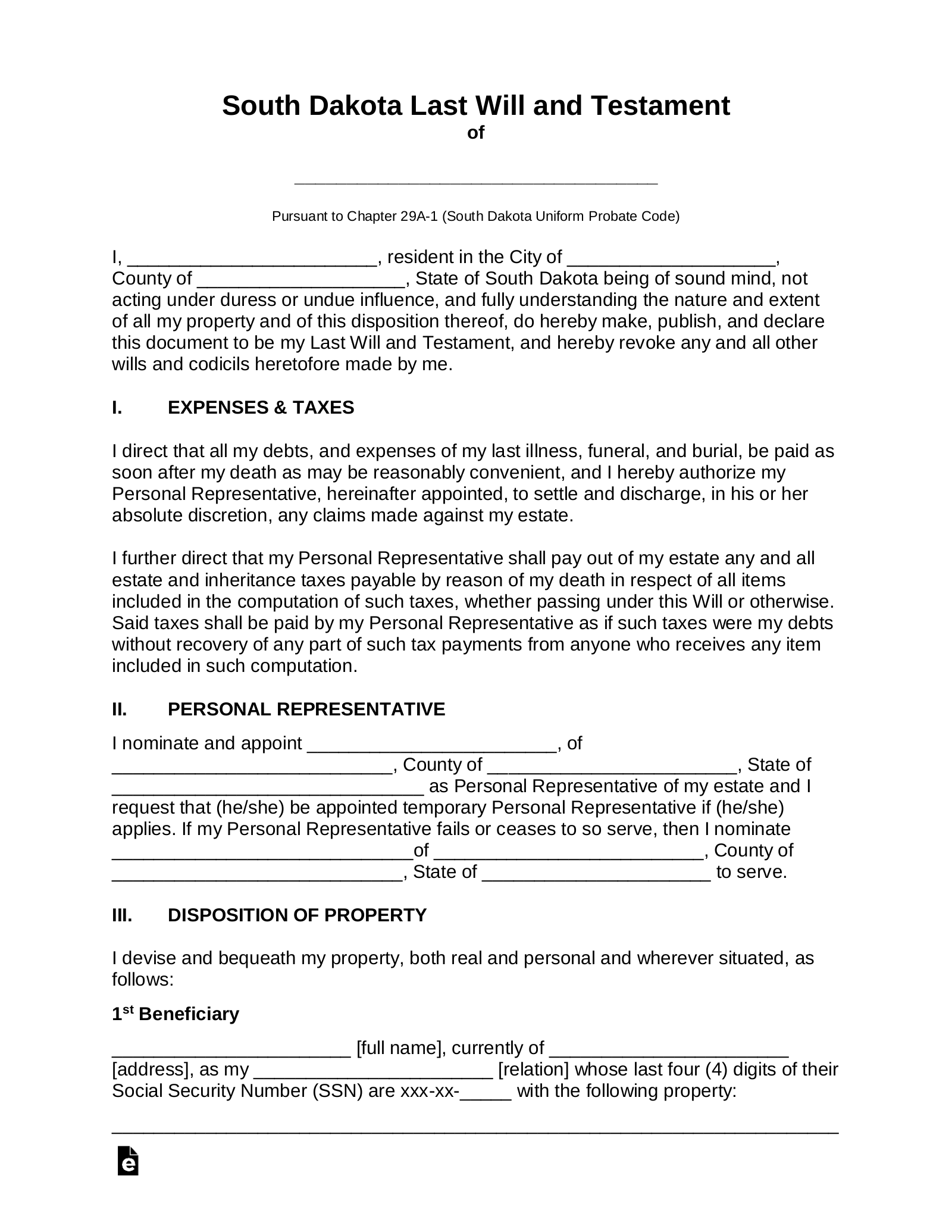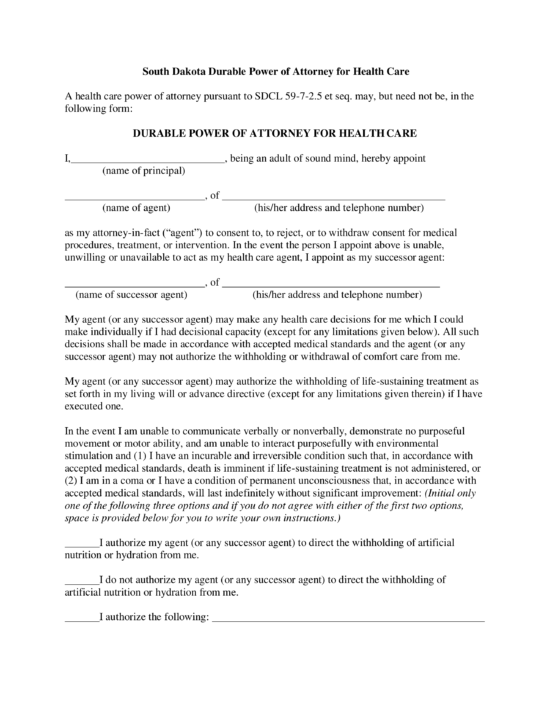Updated November 14, 2023
A South Dakota last will and testament is a legal document created by an individual to outline instructions on how their estate shall be distributed upon death. This person, known as the “testator,” can use a will to dictate the distribution of their real and personal property, fiduciary accounts, life insurance policies, cash-on-hand, and more to their designated beneficiaries.
Signing Requirements
Must be signed in the conscious presence of the testator by two or more individual witnesses.[1]
State Definition
“Will” means an instrument, including a codicil, executed with testamentary intent and in the manner prescribed by this code, including an instrument which (i) disposes of property on or after the testator’s death, (ii) appoints a personal representative, (iii) revokes or amends another will, (iv) nominates a guardian or conservator, or (v) expressly excludes or limits the right of an individual or class to succeed to property of the decedent passing by intestate succession.[2]
Related Forms
Download: PDF
 Durable (Financial) Power of Attorney
Durable (Financial) Power of Attorney



